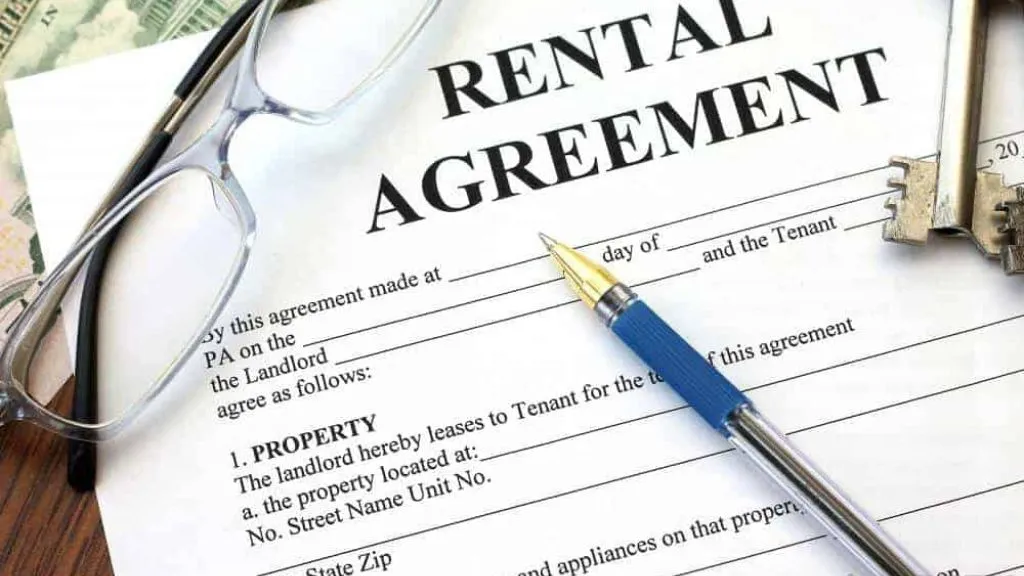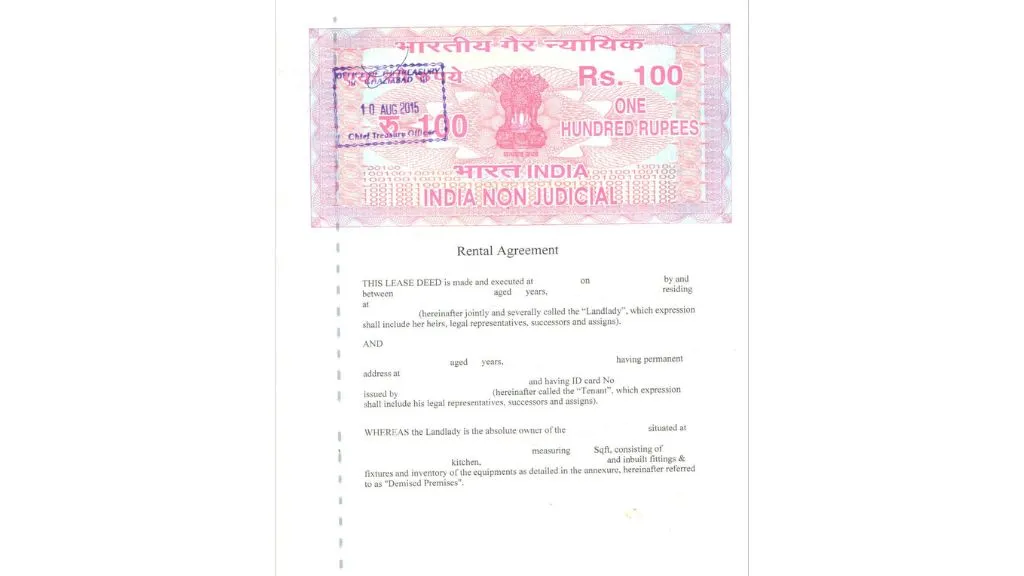
Have you ever wondered why most rental agreements in India are for 11 months and not for a full year or longer? Many tenants and landlords face confusion regarding this standard practice. Registering agreements for over 12 months involves tedious paperwork, hefty stamp duty, and additional registration fees, leading to unnecessary hassle and expenses.
To address this issue, the 11-month rental agreement has become a practical solution, bypassing the legal mandate for registration while offering a flexible and cost-effective way to formalize rental arrangements.
If you are one of such people, this blog is all you need to clear your doubts and worries.
What Is A Rent Agreement? Definition, Form, Contract!
A rent agreement or a lease agreement, rightfully as the name suggests, is a legal mandatory document that needs to be signed by a house owner as well as the tenant in the event of renting a property. This contract or agreement was introduced in order to safeguard the interest and the right of both parties involved in the renting of a house.
Basic information included in a rental agreement is the expected rent amount, owner/rentee personal details, the exact number of fixtures/ furniture let it with the property, the intended purpose of renting the property (residential or commercial), and the duration of the tenancy.
Why Is A Rent Agreement Necessary?
Typically, at the time of renting/ leasing a house, most talks, terms, and discussions are done over a call or by a mutual physical meeting of both parties. A rental agreement, however, as a legal document, records the details of those mutually agreed terms on paper and binds both parties to oblige to the mutually agreed terms.
A rental agreement also pre-determines the clauses under which tenancy can be dissolved/ terminated. Though arent agreement was originally made to safeguard the interest of both parties, as it is legal documentation of the mutually agreed terms, it can also further be used as evidence in the court in case of a dispute between the parties.
Why a Rent Agreement is Made for 11 months?
According to the terms of the Registration Act 1908 of the Indian Penal Court, the signing of a lease agreement is mandatory for a rental period that exceeds 12 months.
- Signing and documentation of such an agreement, however, come at a hefty stamp duty and registration fee. To skip having to bear the said costs and to avoid wasting time and effort, house owners and tenants usually decide to not have the agreement ‘registered,’ and so, most of the rent agreements are signed for 11 months.
- A rent agreement is of only 11 months also because it gives the house owner the flexibility to hike the rent in the 12th month or to terminate the lease without having to commit to the property for too long.
Let’s take Delhi as an example to breakdown the cost of stamp paper depending on the number of years on the lease agreement. The stamp paper can be in the name of the landlord or the tenant. In addition to stamp paper cost, a flat registration fee of ₹1100 will be paid by DD (demand draft).
- A 5 years lease agreement have a stamp paper cost of 2% of the total average rent of a year. If a security deposit is part of this agreement then a flat fee of ₹100 will be added.
- For a lease of 5 to 10 years, the stamp paper cost will be 3% of the total average rent of a year.
- For more than 10 to 20 years, the stamp paper cost will be 6% of teh total average rent of a year.
Say a property is let out for 2 years (24 months). The rent of the property for the,
- First year = ₹20,000 per month
- Second year = ₹22,000 per month
This agreement will have the following charges:
- 2% of the total average rent for a year (12 months) = ₹5040
(average monthly rent = ₹21000
Average annual rent = ₹21000 ✕ 12
2% of average annual rent = ₹5040)
- Security deposit = ₹100
- Registration fee = ₹1100
- Additional cost of lawyers and paperwork
The total cost of a registration amounts to ₹6240 without counting the additional fees for paperwork and lawyers. To avoid this charge, tenets and landlords mutually come to an agreement to not register the agreement.
What Happens if a Non-registered Rental Agreement is Extended Beyond 11 Months?

A non-registered 11-month rental agreement extended beyond 11 months bears the following consequences-
Monetary Consequences
if at the end of 11 months, the owner and the tenant mutually decide to extend the rental contract, either a fresh rent agreement needs to be made for another 11 months or, the existing rental agreement needs to be registered with the local authorities. The registration, as discusses, requires to be paid for in the form of the stamp duty and registration fees; typically to be borne by the tenant.
Legal Consequences
A rental agreement that is extended for a period of more than 11 months but not registered with the authorities cannot be used in the court of the law as a legal document. In addition, a penalty may also be imposed on both parties if a dispute arises.
The Bottom Line: Is an 11-month Rental Agreement Legal in Court?
Once you land a house to rent, the main query you will have is if the answer to “Why a rent agreement is made for 11 months?” is legal or not. Since the Registration Act 1908 of the Indian Penal Court makes the signing of a lease agreement mandatory only for a rental period that exceeds “12 months,” a non-registered rental agreement of fewer than 12 months stands legal and valid in the court and the eyes of the law.
We hope this blog on why a rent agreement is made for 11 months brought you some insight into the legalities of rental agreements in India.






